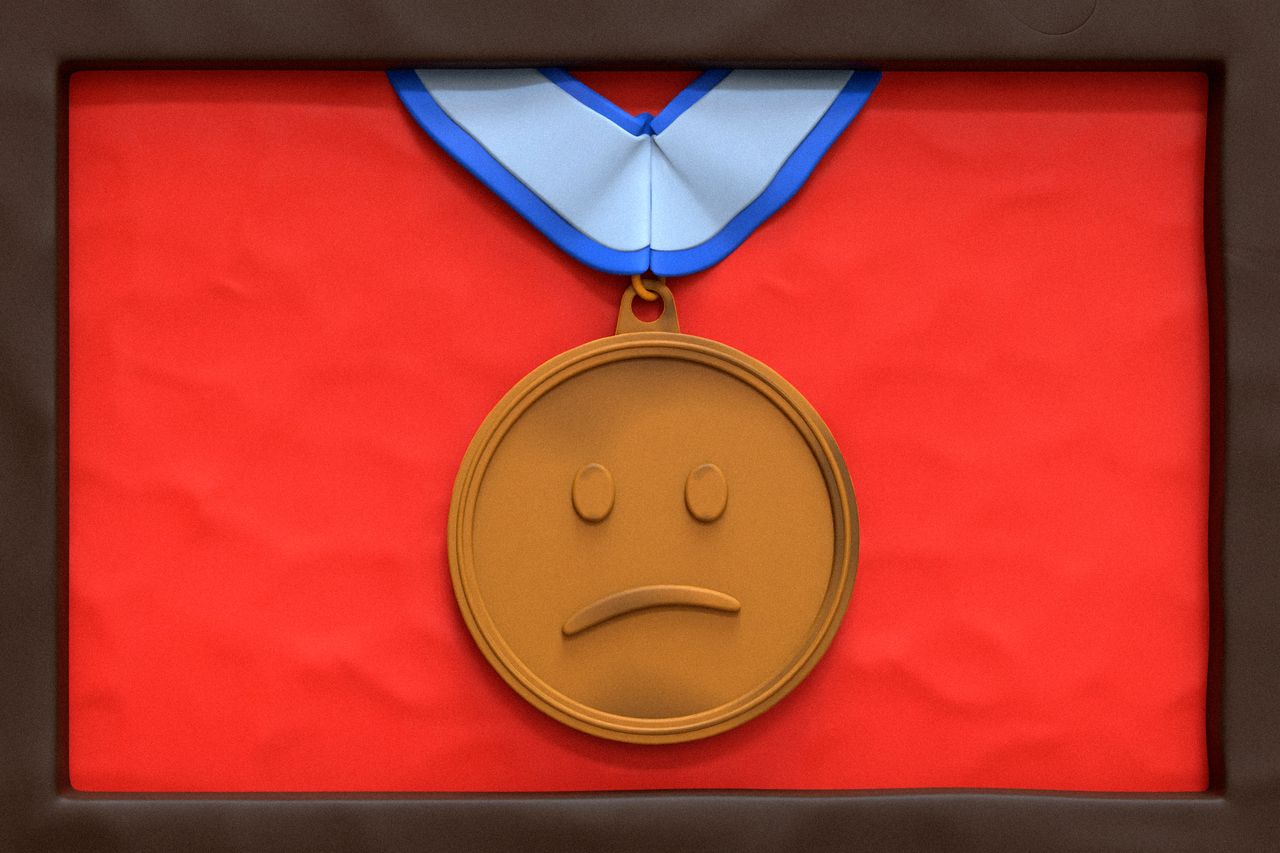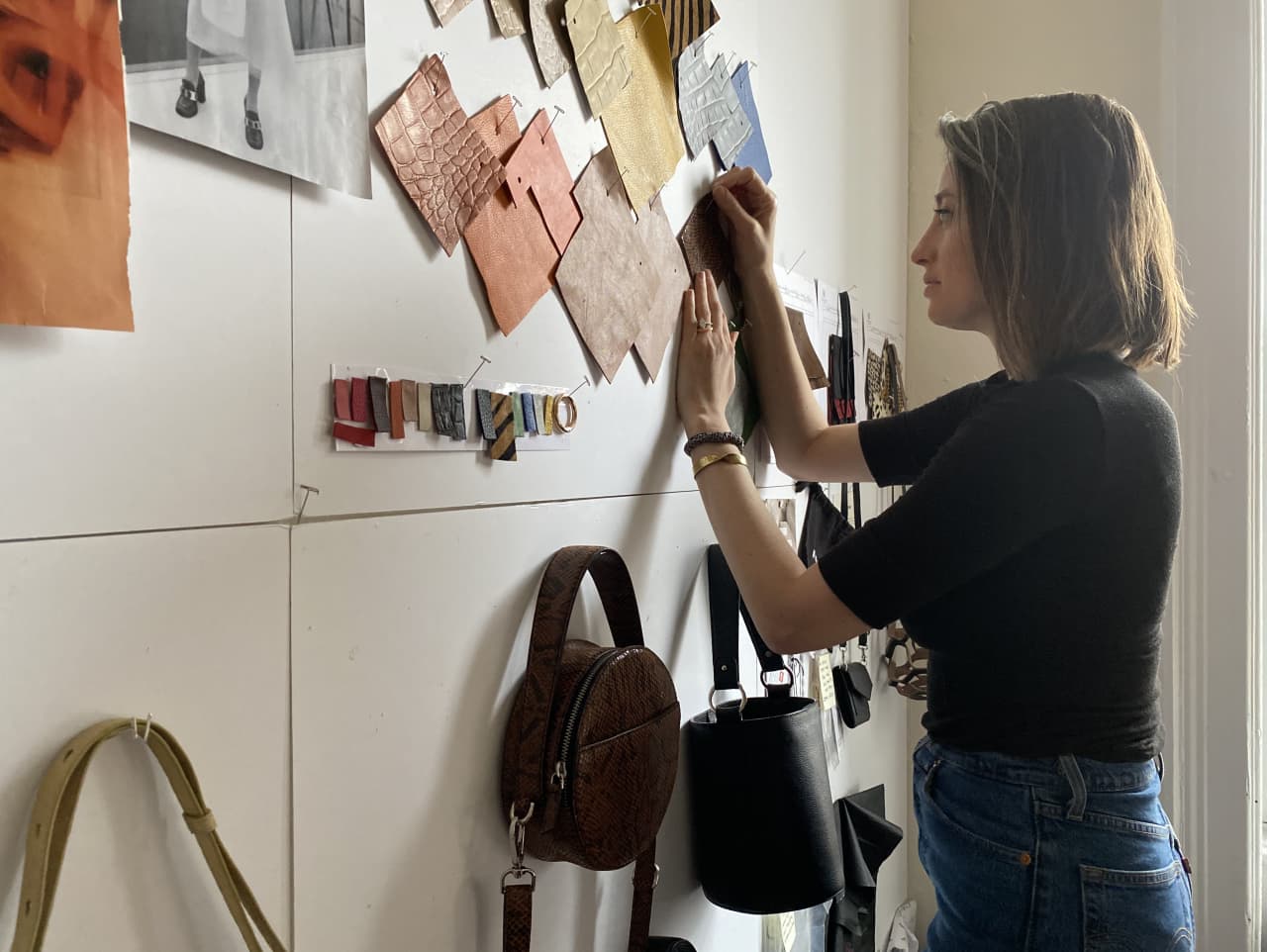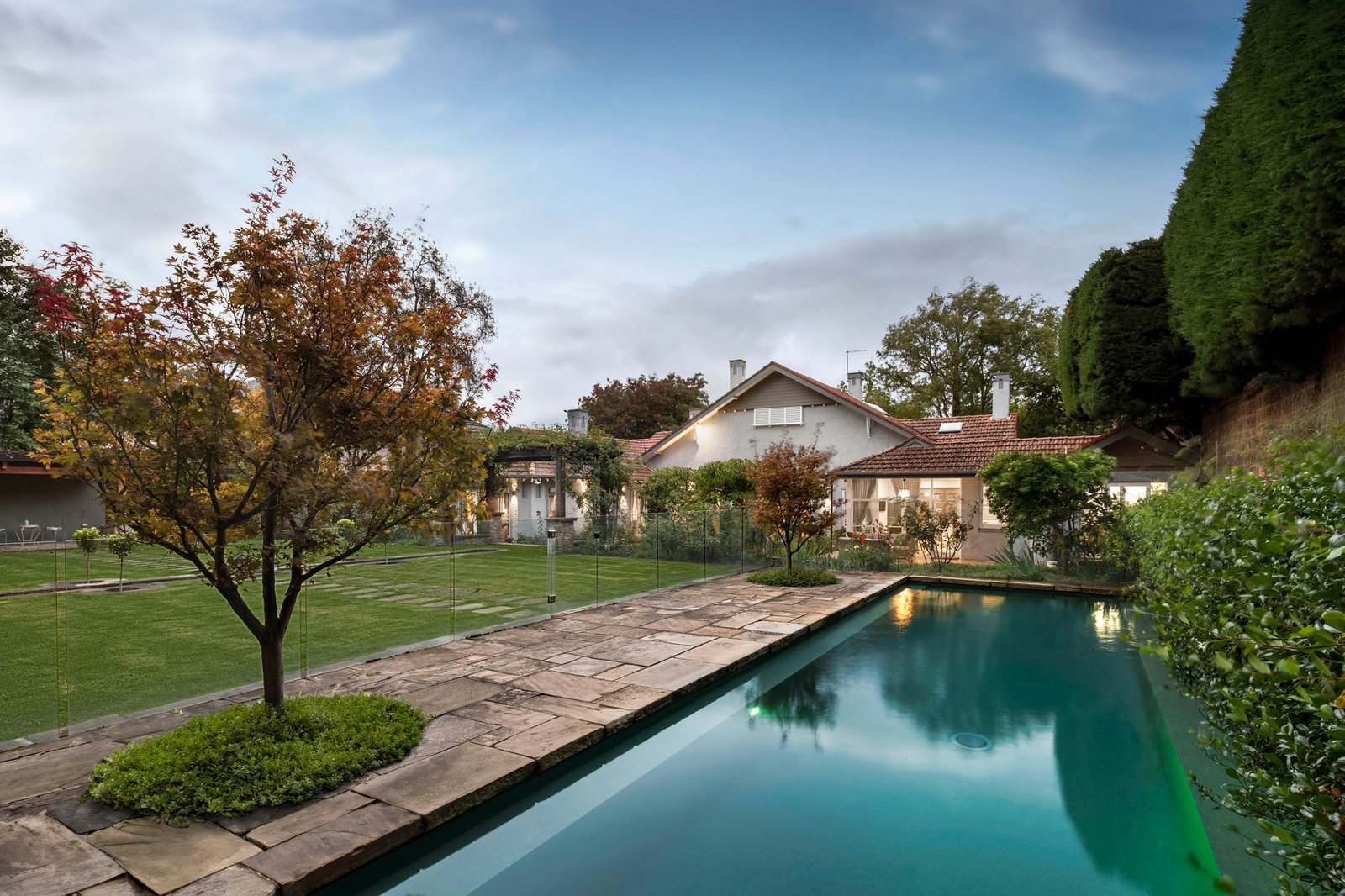‘Is This It?’ When Success Isn’t Satisfying
Here’s how to truly savour the high of hitting a career goal
You got the job, won the award, launched the new project to accolades. So why don’t you feel better?
“You get the title and it’s, like, ‘Ugh. Is this it?’” says Robert Waldinger, a professor of psychiatry at Harvard Medical School who leads a longitudinal study, started in 1938, on how people thrive.
Sometimes, getting the thing is just as delicious as we imagine. Other times, we climb and climb, only to be underwhelmed by what we find at the top: more work, political wrangling, the feeling of being a fraud. Or the success high wears off fast, replaced by that old panic we hoped the accomplishment would finally cure. Then we wonder: Where’s the next win?
We’re all sprinting on what psychologists call a hedonic treadmill. That is, we might get a hit of joy when we achieve something, but we eventually return to our baseline level of happiness (or unhappiness). Whatever heights we reach, we’re still, well, us.
“From the outside, people think, ‘Oh, my God, amazing,’” says Andy Dunn, who helped sell clothing retailer Bonobos to Walmart Inc. in a $310 million deal after 10 years as chief executive and co-founder.
Mr. Dunn, now 44 and based in Chicago, spent years strategising and fantasising about such a sale but says it was a mirage. Building the company brought him more happiness, he says, than the eventual payout. (The Walmart deal paid him tens of millions of dollars.) Now working on a new startup, he’s keeping his team small and not chasing big checks from investors.
“I learned that those are just illusory things,” Mr. Dunn says.
The pursuit of happiness
Plenty of us would be happy to try our luck with fame and fortune, complications be damned. And it’s hard not to crave stuff and status when so much in our culture—from Super Bowl ads to friends’ Instagram feeds—insists that’s where fulfilment lies.
Success itself isn’t inherently bad, notes Dr. Waldinger, who adds: “Just don’t expect it to make you happy.”
Studying the antecedents of happiness among hundreds of participants in the Harvard Study of Adult Development, Dr. Waldinger found people acclimate to the trappings of achievement—including plump paychecks—swiftly.
“The corner office just becomes the place you go and do your work after a while,” he says. “The shine wears off.”
Lasting happiness results from wins that foster deep relationships and are imbued with meaning—some bigger payoff beyond your salary. Think work that affects clients’ lives or bonds your team together. When asked to share what they were most proud of, many of the octogenarians in the Harvard study talked about being a good leader or a helpful mentor, Dr. Waldinger says.
The power of authenticity
Many find they need to be able to succeed as themselves, rather than moulding their personas to fit the goal, to enjoy it.
Steve Babcock moved to New York City from Colorado in 2016 for a top creative job at an ad agency. He went from managing 50 people at his old job to overseeing 200. Industry publications profiled him. Every compliment on his LinkedIn posts was a dopamine hit. But on his train rides home from work, he felt empty. Numb.
“I have to give up who I really am to be this thing,” he says he realised. He preferred to be funny and casual at the office, but suddenly he was the boss. Subordinates often didn’t speak candidly as they tried to impress him, leaving Mr. Babcock feeling disconnected. He was also pulled farther from the creative work that he loved.
“I was always so driven to be seen as important,” he says. “There was just this cost to that.”
Mr. Babcock left the job, moved back to Colorado and now works at a food-technology company doing creative work. He sometimes misses the money—he now earns about what he did a decade ago—and the high-profile projects. He says he’s recently turned down three offers to be a chief creative officer again, unwilling to put the mask back on.
The impostor trap
Sometimes a coveted step up comes with burnout. Sabrina Hua spent three years working toward a promotion, and two years pursuing a master’s degree. She achieved both over a few months in 2021, and felt more miserable than triumphant.
The new job, in a university fundraising office, came with long hours and high-pressure goals. The degree felt like a huge accomplishment until she started to wonder if she needed a PhD.
“I just felt so much anxiety about what’s next,” the 29-year-old says.
Last fall, she quit. She’s spent the months since living off savings, traveling and focusing on small joys. Learning to crochet brought more happiness than completing her graduate program, Ms. Hua says. She plans to start searching for a new job soon, with new priorities.
“I don’t want to be obsessed with titles,” she says. “I want to have time.”
You don’t always have to pull a Peggy Olson, jumping ship from your old gig as she did in AMC’s drama “Mad Men,” to change your mind-set. Ruth Gotian, an executive coach and author of a book about reaching the apex of success, says that professionals often fear they’ll be seen as a fake at the exact moment they’re killing it. Winning a big client or publishing a definitive paper, they brush off compliments and worry that the prize will be taken away.
“Just because it’s unfamiliar doesn’t mean that you’re a fraud,” she says. Try to reframe the discomfort as positive, a cue that you’ve entered a new stage in your career. Collect thank-you notes and records of your wins along the way, so you can pull them out when you’re feeling shaky.
“There is a whole trail, a whole history of things that led to this point,” Dr. Gotian says.
 Copyright 2020, Dow Jones & Company, Inc. All Rights Reserved Worldwide. LEARN MORE
Copyright 2020, Dow Jones & Company, Inc. All Rights Reserved Worldwide. LEARN MORE
This stylish family home combines a classic palette and finishes with a flexible floorplan
Just 55 minutes from Sydney, make this your creative getaway located in the majestic Hawkesbury region.
As Paris makes its final preparations for the Olympic games, its residents are busy with their own—packing their suitcases, confirming their reservations, and getting out of town.
Worried about the hordes of crowds and overall chaos the Olympics could bring, Parisians are fleeing the city in droves and inundating resort cities around the country. Hotels and holiday rentals in some of France’s most popular vacation destinations—from the French Riviera in the south to the beaches of Normandy in the north—say they are expecting massive crowds this year in advance of the Olympics. The games will run from July 26-Aug. 1.
“It’s already a major holiday season for us, and beyond that, we have the Olympics,” says Stéphane Personeni, general manager of the Lily of the Valley hotel in Saint Tropez. “People began booking early this year.”
Personeni’s hotel typically has no issues filling its rooms each summer—by May of each year, the luxury hotel typically finds itself completely booked out for the months of July and August. But this year, the 53-room hotel began filling up for summer reservations in February.
“We told our regular guests that everything—hotels, apartments, villas—are going to be hard to find this summer,” Personeni says. His neighbours around Saint Tropez say they’re similarly booked up.
As of March, the online marketplace Gens de Confiance (“Trusted People”), saw a 50% increase in reservations from Parisians seeking vacation rentals outside the capital during the Olympics.
Already, August is a popular vacation time for the French. With a minimum of five weeks of vacation mandated by law, many decide to take the entire month off, renting out villas in beachside destinations for longer periods.
But beyond the typical August travel, the Olympics are having a real impact, says Bertille Marchal, a spokesperson for Gens de Confiance.
“We’ve seen nearly three times more reservations for the dates of the Olympics than the following two weeks,” Marchal says. “The increase is definitely linked to the Olympic Games.”

Getty Images
According to the site, the most sought-out vacation destinations are Morbihan and Loire-Atlantique, a seaside region in the northwest; le Var, a coastal area within the southeast of France along the Côte d’Azur; and the island of Corsica in the Mediterranean.
Meanwhile, the Olympics haven’t necessarily been a boon to foreign tourism in the country. Many tourists who might have otherwise come to France are avoiding it this year in favour of other European capitals. In Paris, demand for stays at high-end hotels has collapsed, with bookings down 50% in July compared to last year, according to UMIH Prestige, which represents hotels charging at least €800 ($865) a night for rooms.
Earlier this year, high-end restaurants and concierges said the Olympics might even be an opportunity to score a hard-get-seat at the city’s fine dining.
In the Occitanie region in southwest France, the overall number of reservations this summer hasn’t changed much from last year, says Vincent Gare, president of the regional tourism committee there.
“But looking further at the numbers, we do see an increase in the clientele coming from the Paris region,” Gare told Le Figaro, noting that the increase in reservations has fallen directly on the dates of the Olympic games.
Michel Barré, a retiree living in Paris’s Le Marais neighbourhood, is one of those opting for the beach rather than the opening ceremony. In January, he booked a stay in Normandy for two weeks.
“Even though it’s a major European capital, Paris is still a small city—it’s a massive effort to host all of these events,” Barré says. “The Olympics are going to be a mess.”
More than anything, he just wants some calm after an event-filled summer in Paris, which just before the Olympics experienced the drama of a snap election called by Macron.
“It’s been a hectic summer here,” he says.

AFP via Getty Images
Parisians—Barré included—feel that the city, by over-catering to its tourists, is driving out many residents.
Parts of the Seine—usually one of the most popular summertime hangout spots —have been closed off for weeks as the city installs bleachers and Olympics signage. In certain neighbourhoods, residents will need to scan a QR code with police to access their own apartments. And from the Olympics to Sept. 8, Paris is nearly doubling the price of transit tickets from €2.15 to €4 per ride.
The city’s clear willingness to capitalise on its tourists has motivated some residents to do the same. In March, the number of active Airbnb listings in Paris reached an all-time high as hosts rushed to list their apartments. Listings grew 40% from the same time last year, according to the company.
With their regular clients taking off, Parisian restaurants and merchants are complaining that business is down.
“Are there any Parisians left in Paris?” Alaine Fontaine, president of the restaurant industry association, told the radio station Franceinfo on Sunday. “For the last three weeks, there haven’t been any here.”
Still, for all the talk of those leaving, there are plenty who have decided to stick around.
Jay Swanson, an American expat and YouTuber, can’t imagine leaving during the Olympics—he secured his tickets to see ping pong and volleyball last year. He’s also less concerned about the crowds and road closures than others, having just put together a series of videos explaining how to navigate Paris during the games.
“It’s been 100 years since the Games came to Paris; when else will we get a chance to host the world like this?” Swanson says. “So many Parisians are leaving and tourism is down, so not only will it be quiet but the only people left will be here for a party.”
This stylish family home combines a classic palette and finishes with a flexible floorplan
Just 55 minutes from Sydney, make this your creative getaway located in the majestic Hawkesbury region.






















